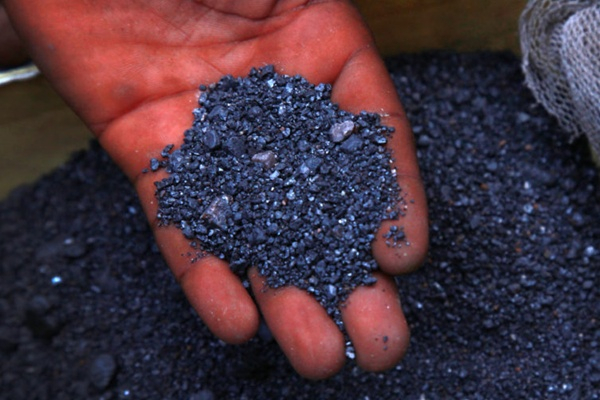A recent UN report has revealed that the M23 rebels in the Democratic Republic of Congo (DRC) are believed to have illicitly exported at least 150 tonnes of coltan to Rwanda in 2024. This development has been described as “the largest-ever contamination of the Great Lakes region's mineral supply chain”.
The report, relayed by international media outlets such as Reuters, details how the M23's control over transport routes leading to Rwanda facilitated this trafficking. According to the UN, after seizing control of Rubaya, a coltan-rich region in North Kivu, M23 “imposed” taxes on coltan mining sites, reportedly earning around $800,000 monthly from exporting their output to Rwanda.
This is not the first instance of Rwanda being accused of receiving coltan illegally exported from the region. In April 2024, pan-African economic media Ecofin Agency reported that Rwanda was “the preferred route for illicit coltan trade in the area”. Ecofin’s source was an ENACT report “Mining and illicit trading of coltan in the Democratic Republic of Congo”. The factors favoring this include a lack of export taxes on coltan and the ability to reclassify imported goods as "made in Rwanda" if they undergo processing with at least 30% added value. It is suggested that “much of the ore exported from Rwanda is of Congolese origin”.
Additionally, a 2022 Global Witness report found that 90% of the 3T ores exported by Rwanda were smuggled from the DRC. More recently, the issue gained attention when the DRC accused Apple of sourcing smuggled coltan, allegations that Apple denied while suspending its coltan supplies in Rwanda and the DRC. The new UN study's findings further fuel the controversy surrounding Rwanda's coltan exports.
In 2023, Rwanda was the world's largest exporter of this mineral, crucial for manufacturing computers and smartphones, with production estimated at 2,070 tonnes, compared to the DRC's 1,918 tonnes. The DRC is believed to hold between 60 and 80% of the world's coltan reserves.
According to Congolese authorities, the country loses approximately $1 billion annually due to illegal trafficking in 3T ores and gold. Besides Rwanda, neighboring countries like Uganda and Burundi are also identified as key destinations for these illicit minerals.
Aurel Sèdjro Houenou, Ecofin Agency










